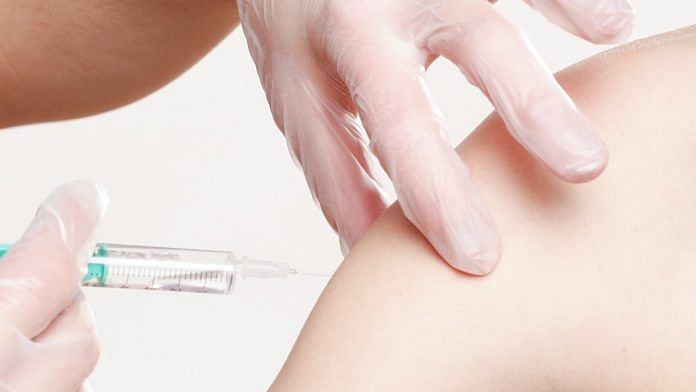Until a vaccine is created and made widely available, Covid-19 will persist as an economy-wrecking, joy-destroying, deadly global menace. It could be a year away, and with every month of delay, at today’s death rate, 180,000 lives are lost.
There is a potential short cut, one that could shave months from the wait. That is to conduct so-called human-challenge studies, in which volunteers treated with experimental vaccines are then deliberately infected with the novel coronavirus. This would enable researchers to observe in a matter of weeks whether the vaccine candidate is protective — rather than wait months for subjects in a standard clinical trial to randomly catch the disease.
The idea of infecting healthy subjects with Covid-19 might strike you as repellent. And yet many scientists and policy makers say it’s worth thinking about.
The downside is significant. The strategy calls to mind horrendous experiments in which Nazi prisoners were injected with tuberculosis bacteria, or those in which New York City children with mental disabilities were infected with hepatitis A. It contradicts the maxim to first do no harm. But deliberately infecting well-informed volunteers is in fact an accepted way of investigating vaccines for infectious diseases, and has been used in trials involving malaria, typhoid and cholera. Medical ethicists say that when such research is done with all due medical care and with the full consent of adult subjects who demonstrably understand the risks, then the potential to save lives can justify it.
The catch with Covid-19 is that, unlike malaria, typhoid and cholera, it has no proven treatment. What’s more, the risk to volunteers is very hard to assess, given how much about the disease remains mysterious, including why some people are more vulnerable than others. The risk of death in people age 20 to 44 appears to be less than 0.2%, but doctors do not yet know why certain young people suffer strokes or otherwise become gravely ill from the new coronavirus. On the other hand, Covid-19 is under intense and widespread scientific scrutiny. Some of its mysteries might be cleared up in the weeks and months ahead, and effective treatments could come into view — as remdesivir has in a preliminary way. Research published just last week has revealed biomarkers that can identify individuals who are especially vulnerable.
Also read: Remdesivir to be made in India as 3 firms get nod from US drug-maker for generic version
So it makes sense, even as ethicists, vaccine developers and the larger scientific community examine the pros and cons, to begin the lengthy process of laying the groundwork, just in case.
It could take six months or more to prepare. Researchers would need time to select a specific strain of the virus to use (either a natural one or a weakened version), purify it and determine the precise dose to be used in a trial. (The lowest possible dose is desirable, but it must be enough to cause the disease.) Also, volunteers would need to be isolated for at least a couple of weeks and then, if necessary, receive state-of-the-art medical treatment. Volunteers would have to be screened to ensure that they fully understand what they’re in for — for example, by taking tests designed to measure their comprehension of the risks.
Already, more than 22,000 people have volunteered to participate in human challenge studies for vaccines. Not all of them would qualify as being minimally at-risk — young adults with no underlying health conditions — and appropriately aware of the dangers. But it would take only 50 to 150 of them to conduct a vaccine trial that involved deliberate infection with Covid-19. Any vaccine candidate that passed such a challenge trial could then be tested in a field study lasting a few months in which some 3,000 subjects would be given the drug to ensure that it triggers an adequate immune response in people of all ages and causes no unacceptable side effects.
The alternative is to conduct a phase III clinical trial to test whether the vaccine candidate offers greater protection than a placebo against Covid-19. This takes many months, because a significant number of subjects need to become infected accidentally — in an environment where people are trying hard to avoid infection by wearing masks and keeping their distance from others.
Given how quickly some vaccine developers are moving their candidates along, it’s conceivable that at least one will succeed before a human challenge trial could be arranged. That would be good news. But it’s likely that more than one vaccine will be needed, and challenge trials could be useful in screening other possibilities. (More than 100 are in the pipeline.)
Challenge trials could also teach scientists much about the details of human infection by the new coronavirus. Because subjects would be followed from the moment of exposure, it would be possible to measure exactly how long it takes before symptoms appear, how long the body needs to clear the virus and how long people are contagious.
It’s difficult to be entirely comfortable with the idea of deliberate Covid-19 infection. As National Institutes of Health leaders Francis Collins and Anthony Fauci have said, the strategy would first need to be thoroughly evaluated by vaccine scientists and ethicists. It would be crucial to ensure that such studies were carefully carried out, and that they really had the potential to yield an effective vaccine faster. Given the enormous cost of delay, the idea should not be dismissed. – Bloomberg
Also read: 40-paise a pill antacid is new hope to treat Covid, Modi govt wants to stock up



